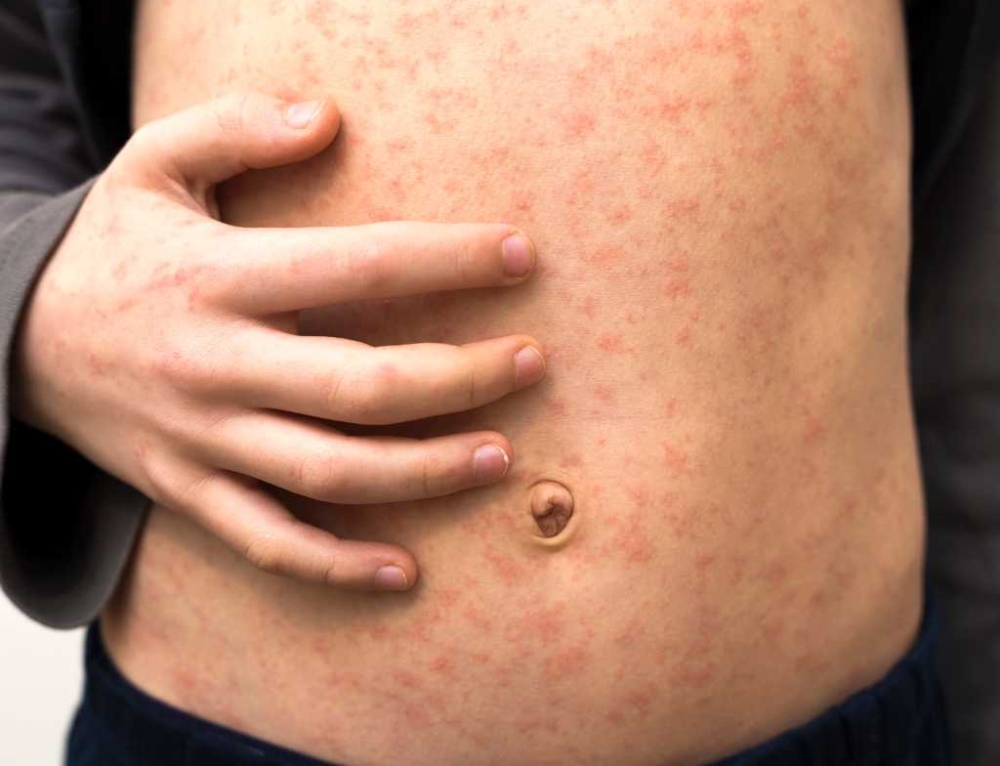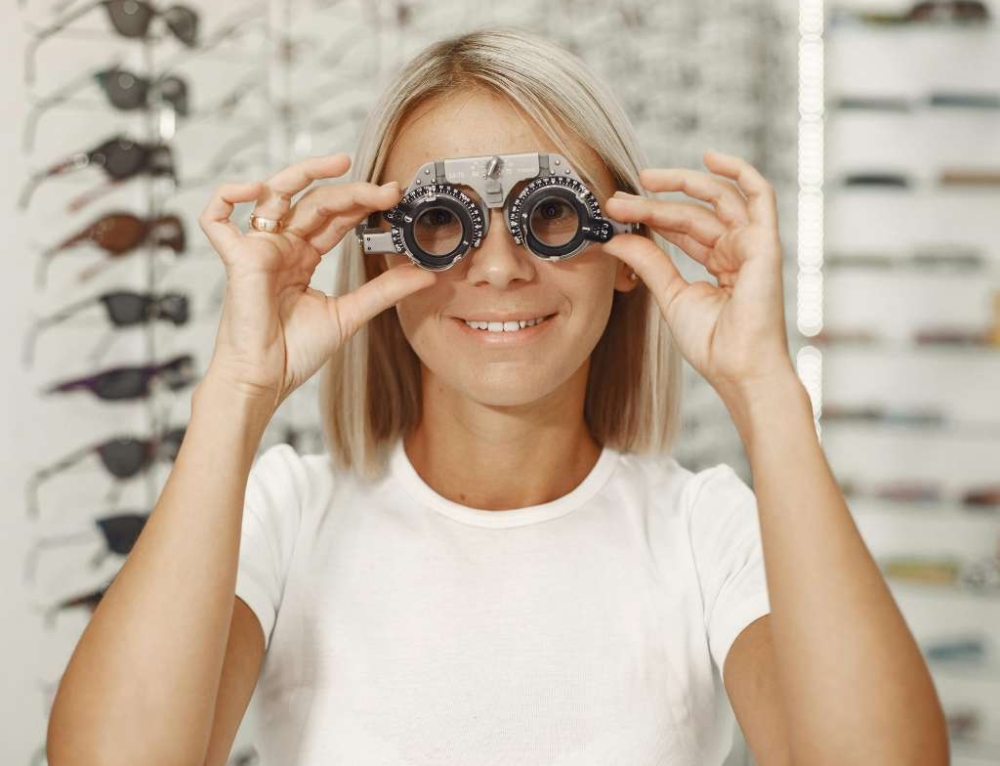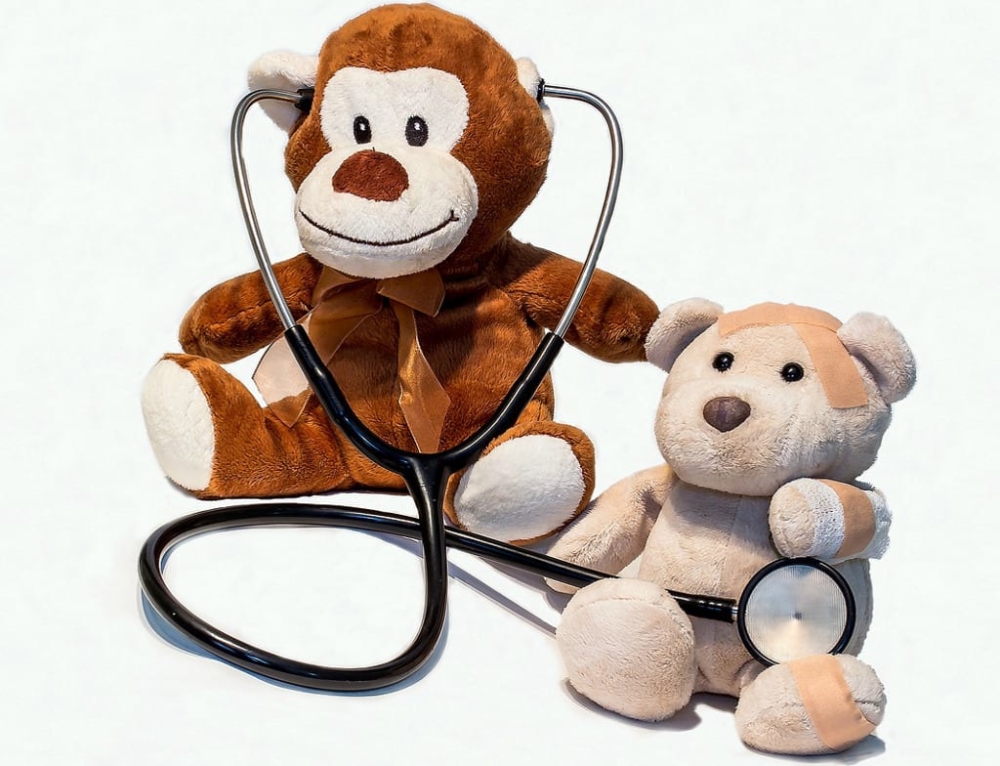Got a question about COVID-19? Kidspot hosted a Q&A with nanotechnologist Dr Michelle Dickinson, aka Nanogirl, to help answer our readers’ questions about the coronavirus pandemic.
Take a read through the questions and answers below.
COVID-19 and kids
Q: What’s the best way for me to explain what is happening in the world right now to my kids without causing them unnecessary anxiety?
A: This will depend on the age of your children but if you check out my free videos on www.nanogirlslab.com you will see how I show with a soft toy and some soap simple ways to talk to you children. I also have some longer videos on YouTube under my “coronavirus” playlist.
Q: How much should we worry about our children getting the virus? Is it a cold as some say or is it bad as other stories show. Obviously there is a lot of media hype which is both worst and best case.
A: While the initial reports showed that the virus didn’t seem to produce severe symptoms in children – this has now changed and sadly a handful of children have passed away due to COVID-19. Therefore we need to take it seriously for everyone whatever age, but also be aware that children may carry the virus with no symptoms and then pass it on to high risk people in their lives like their granparents.
Hand washing and hygiene
Q: Do we need to keep washing our hands constantly when our family never leave the house and no one enters?
A: Washing your hands, especially after using the bathroom and before eating is great to prevent the spread of all sorts of bacteria and viruses that can make you sick. However if you are staying home and not in contact with anyone other than each other you probably don’t need to wash them excessively.
Q: We are struggling to get our kids to understand why it is more important to wash their hands at the moment. Any tips?
Try this YouTube video for younger kids or this for older kids.
Q: Do we all have to wear gloves or does hand sanitizer and a warm soapy hand wash when we get home work just as well?
A: Gloves are not needed by most people as gloves won’t protect you from the virus. The virus enters your body from contact if you touch something infected and then touch your face. The best thing to do is as you said – keep washing your hands in soapy water and be aware of not touching your face if possible.
Q: I’ve been using a diluted bleach mix to wipe down the shopping we bring into the house. Does this do anything? Do I need to keep doing this? I’m so tired of cleaning!
A: New Zealand is in a really great position to have only 1% transmission meaning the risk that the virus is on your shopping is very small. Most people are OK with a tiny risk and aren’t wiping down their shopping but for others they don’t want to take any risks so are wiping down with a soapy paper towel or diluted bleach. It’s all about how much you want to feel in control of your own bubble but the risk is very low. I would give different advice to people in high transmission countries like the US and much of Europe.
Q: Can you use any soap? Are the eco ones just as effective?
A: The ingredient that you need is one that acts as a surfactant. In standard soap this is called SLS or sodium laurel sulphate on the ingredients. Some ecosoaps use a plant or coconut version of this so you might need to look up the ingredients list on your soap. Dish soap also works
Out and about
Q: Are we able give meals or baking to other people without entering their bubble?
A: The ideal situation is no, unless they are in need. We are trying to reduce contact between people and there is a tiny chance that if you were infected you could infect the food that goes to the other person. There are however situations where people might need food as they can’t provide for themselves.
Q: I’ve been told the virus can even stay on footpaths etc for a number of days. I’m not sure if this is true or not so can you shed any light on this and if it is true, I’m assuming we should be disinfecting our shoes etc too after going out for our walks?
A: It’s probably best not to wear shoes in the house for many reasons as there are lots of germs you can bring in. COVID-19 seems to prefer flat surfaces like steel and plastic more than rough surfaces like concrete and fabrics. Scientists think it can remain active for up to 3 days on these flat surfaces. We believe that UV can degrade the virus so a sunny rough path will likely pose less of a risk than an indoor steel public door handle.
Q: Will a mask protect me from the virus?
A: Surgical masks which are the ones being sold at supermarkets and pharmacies are not designed to protect you from the virus, but instead stop you spreading the virus through droplets if you are infected and sneeze or cough. There is very little research done around COVID-19 and masks for the public and many countries who enforced masks also enforced lockdowns at the same time so it’s difficult to separate what actually works. Siouxsie Wiles has written a great article and I love the graphic for showing why masks can be great but also a problem if hands aren’t washed.
Health and risk
Q: My partner and son both have asthma and while I know they would be classed as a higher risk, are there any other illnesses that aren’t respiratory and cardiac which could put someone into the high risk category?
A: There are lots and we are still learning high risk groups are listed here on the CDC website.
Q: My son has been coughing for 2 weeks and had mild temps, but those have gone. Can the virus be so mild in kids that he actually had it, but not worth getting tested now? There must be a lot of children who have had a mild case and hence the numbers are under-stated.
A: The research around infections in children is still small but it is possible that he could have had it – it’s also possible that it could have been many other things too as many infections. If you are suspicious then please contact healthline who will guide you and be aware that you and anybody else in your bubble may be infected/infectious.
Q: My son who is now 6 and generally very fit and healthy does tend to get bronchiolitis once or twice a winter perhaps due to his premature birth – do you think he could potentially have a bad reaction or be more at risk if he was to get the virus?
A: Sadly the data for children is very small so we really don’t know. As the virus affects everyone differently it pays to just be extra cautious and try to remove any transmission risks that you can by ensuring he washes his hands often and is aware of how the virus spreads.
Q: My 6yr old gets asthma and bad coughs every winter and twice has pneumonia is he at higher risk? And over this coming winter will the risk be higher?
A: The risk may be higher in the winter as we spend more time indoors with more potential to physically contact in the winter. Researchers are still determining what higher risk means for different age groups but my advice is to help your 6 year old be aware of how germs spread to minimise their risk from behaviours they may be doing.
Q: Are the effects of the virus expected to be worse in winter?
A: We know that the flu virus tends to infect more people in the winter but this may just be because we tend to all be indoors and have more contact with people in the winter. While the virus does seem to be temperature sensitive and prefer the cold the temperatures that it doesn’t like are way hotter than we experience at 56C and the virus has spread in countries experiencing both warm and cold weather so the virus is unlikely to behave differently in a NZ winter – however the people might give it more chances to spread as they huddle together more.
Immunity
Q:Is it true that kids immune system is much higher than adults and that is why they don’t seem to get the disease so badly?
A: Great question and the answer is that we don’t know. The evidence seems to show that children tend to show less severe and fewer symptoms that adults and the same was seen for similar coronaviruses like SARS and MERS. Scientists do think that there may be a difference in the immune systems of children that could be offering a protection but they aren’t sure what it is.
Q: When children do go back to school, do we need to boost their immune systems or get them flu vaccinations …. being in our bubble is good for one thing, but surely lessens exposure to germs/bugs etc?
A: Healthy immune systems come from eating lots and a variety of fresh foods especially fruits and vegetables. I would be suggesting that for all children anyway. It’s best to talk to your doctor about whether or not your child should get the flu shot as there are some reasons why this isn’t always suitable depending on the health of your child. The good thing is that the constant handwashing from COVID seems to be reducing the transmission of flu across the world so hopefully this teaches our children about virus spread for all sorts of viruses.
Q: Is it true what they are saying you can catch it again or there is a new strain you can catch?
A: We actually don’t know for sure I’m afraid. If we assume that COVID-19 behaves like SARS and MERS which are similar coronaviruses then once you have recovered from the virus it’s likely that you will be immune for a few years. There has been no large testing to prove this yet though.
Q: What vitamins and foods should we be eating to boost our immunity? For now and moving forward when the kids go back to school?
A: Just a balanced diet that includes lots of fruit and veg should be good. Most of us can get all of the vitamins we need from a good diet.
Q: If the predictions are right, and a huge portion of the population will eventually get some form of the virus anyway, why not let the kids stay at school that aren’t immune deficient or that don’t have older people at home that are at risk?
A: There are lots of predictions and they all rely on the right data being fed into the system. Nobody has perfect data so the predictions are wide-ranging depending on what the inputs are. In New Zealand there is no need to believe that we will all be infected as we have managed to control the spread really well. Kids who go to school touch door handles and public objects which the virus can live on for 3 days. It only takes an immune compromised person to touch the same door for them to become infected. We also need to make sure that our health care system can cope with the influx of patients which is why reducing transmission is so important.
Moving forward
Q: What can we expect when we come out of Level 4 do you think?
A: The best thing to do is to look at the alert levels and expect something within those. Likely a level 2 or 3 to start as we figure out what our new normal is. The world going to be struggling even when NZ comes out of lockdown so we will need to expect restrictions around global travel to stick around for a while
Q: What are some cool, fun science experiments we can do at home for two boys ages 4 and 6?
A: There are so many! Why not try this one. Kidspot also has some great science experiments to choose from over in our Activities section.
 Written by Julie Scanlon
Written by Julie Scanlon
Julie is Editor for Kidspot NZ and our MVP. Her hobbies include laughing uncontrollably at her own jokes, annoying her family by asking questions about movie plots, and never taking anything too seriously. She speaks a little Spanish and a lot of Yorkshire.
Favourite motto to live by: “It ain’t nothing but a thing”







Leave A Comment
You must be logged in to post a comment.